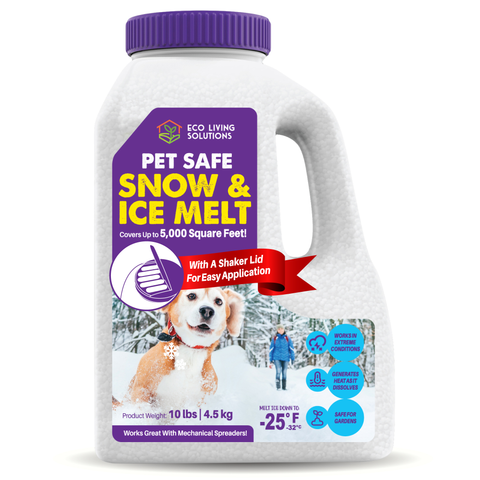What can I Put on My Driveway If It Snows?
To answer the question, let's first see what are the options we have?
- Sand
- Sand will not help to keep ice from forming like rock salt and other deicing agents can, but it can provide traction for slippery walkways.
- Salt
- Salt is most used deicing agent. Deicing salt is used to reduce the freezing point in water, so snow melt will not be frozen into ice.
How does Salt Work When Used as Deicing Agent?
First thing first, the salt is for the ice instead of for the snow. Snow can fall as light and fluffy flakes, but between the weight of itself and foot traffic, that light fluffy snow could be packed down to slippery and dangerous ice. Anti-freezing agents, such as calcium chloride, help to remove the dangers of ice for both you and your neighbours.
Salt lowers the freezing temperature of water, which prevents ice or frost forming on the driveways. The high concentration of salt helps to lower the freezing point of the mixture. Generally, on the roads, rock salt (sodium chloride) water will refreeze once the temperature falls below -10 degrees centigrade. However, our calcium chloride continues to work even under -25 degrees centigrade.
Should I Salt Driveway Before or After It Snows?
When salt is spread on top of ice or snow, each grain of salt will begin to melt the surrounding ice working its way outwards. As it melts the ice, it forms a pool of salty water, which in turn helps to melt the surrounding ice and so on. Without any traffic to move the salt and salty water around and mix it into the thawing ice, the melting process can take considerable time.
When snow falls on top of salt then it begins to melt the snow from beneath. The vehicles over the snow will actually help the snow mix with salt faster by compressing them. Therefore, any vehicular movements will speed up this process. If there is little traffic, or very slow moving traffic, then a very thin layer of ice may form on top of the snow until the salt works its way up from below, which is usually faster as the weight of snow is pushing it to the salt.
Overall, pre-salting the road forms a separating layer so if snow falls, it doesn't freeze onto the road surface and can be removed easily. Therefore, we would recommend salting driveways before snowing as it is always easier and more efficient than doing it after.

